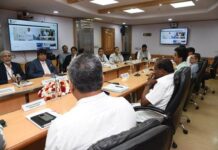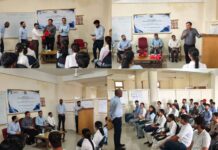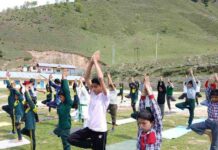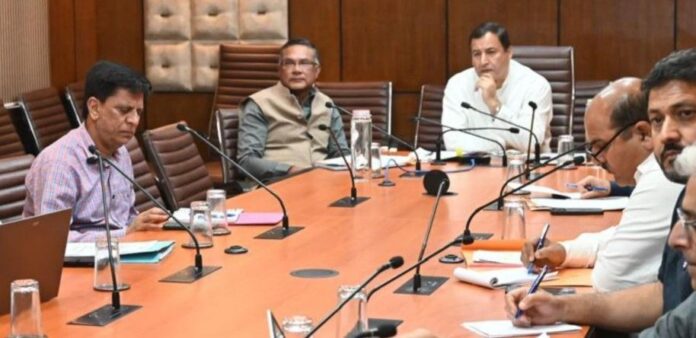MAY 20: Minister Javid Ahmad Dar participated in a virtual high-level meeting on the Viksit Krishi Sankalp Abhiyan, chaired by Union Agriculture Minister Shivraj Singh Chouhan. The session brought together key stakeholders from across the nation to discuss the future roadmap for India’s agriculture sector under the visionary leadership of Prime Minister Narendra Modi.
During the session, Minister Dar reaffirmed the Union Territory of Jammu and Kashmir’s unwavering commitment to transforming its agricultural landscape. He emphasized that boosting farm productivity and ensuring sustainable income growth for farmers remain top priorities for the J&K administration.
“Our focus aligns closely with Hon’ble Prime Minister Narendra Modi’s vision of empowering farmers and building a self-reliant agriculture ecosystem. Jammu and Kashmir is fully dedicated to doubling farmers’ incomes and introducing modern, scientific practices to agriculture,” said Dar.
The virtual meeting focused on the implementation strategies of Viksit Krishi Sankalp Abhiyan—a national campaign aimed at modernizing Indian agriculture through technological innovation, better irrigation practices, access to quality seeds, organic farming promotion, and increased use of agri-technology.
Union Agriculture Minister Shivraj Singh Chouhan, in his address, outlined key targets under the initiative and encouraged states and UTs to adopt localized, farmer-centric policies. He praised the efforts of various regions and highlighted the importance of collaborative efforts between the Centre and the states for holistic agricultural development.
Minister Javid Ahmad Dar also highlighted several initiatives already underway in J&K, including promotion of high-density crops, organic farming, cold storage chains, and farmer training programs. He assured the Union Government of J&K’s active participation in achieving the goals of Viksit Bharat through enhanced agricultural productivity and infrastructure development.
He further noted that farmers in J&K are being encouraged to adopt innovative practices and benefit from government schemes, subsidies, and credit facilities.
The meeting concluded with a shared vision among all participating states and UTs to work in unison toward a self-reliant, prosperous rural India where farmers play a central role in the country’s progress.



















